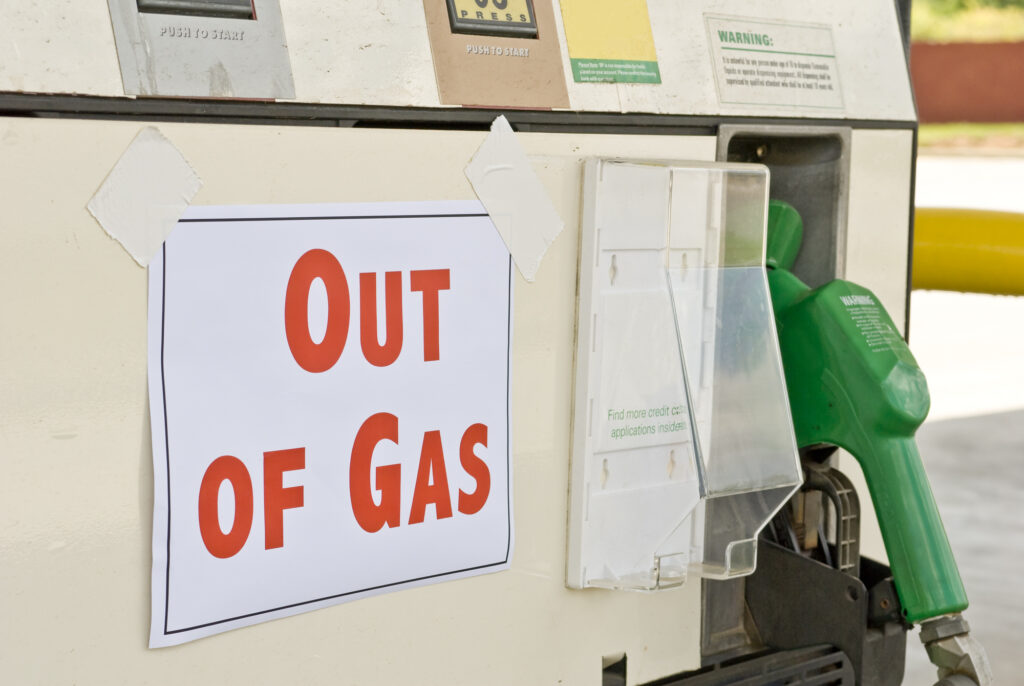A secure supply of energy is critical to our way of life
Energy is life. We depend upon it to get from place to place, warm (or cool) our homes, cook our food and communicate with one another. Everything we need to live our lives comes from a supply chain that uses energy to mine raw materials, manufacture products and ship them to our door. For most of us, we depend upon other countries as our source of energy. When the security of that supply is put at risk, we know our lives are about to get a whole lot harder.
What do we mean by “energy security”? The traditional definition is secure access to fuel whether coal, oil, gas or uranium. Unfortunately, fuels are located in some parts of the world and not others. Energy rich countries gain political power due to the importance of their energy exports in meeting global demand. When markets lose access to these exports it is often a result of geopolitical issues whereby energy trade has been weaponized.

The war in Ukraine is the most recent conflict that has disrupted global energy flows. Russia is a major supplier of both oil and natural gas. Realigning global energy markets to reduce or eliminate this source of supply causes great challenges. Whether by design as the first oil embargo by the OPEC nations in the early 1970s, or later conflicts in the middle east, ensuring energy security has always been an essential element of countries’ energy policies. Normally, global market demand and supply of energy products tend to be relatively in balance. The market can tolerate small changes but any significant sudden reduction in supply impacts everyone. The economic laws of supply and demand work as markets losing their supply look for alternatives. The result is that prices go up everywhere. This can be seen today as consumers in North America, far away from the Ukrainian conflict, are experiencing huge increases in the cost of gas to fuel their vehicles.
It is easy to say the answer is for nations to strive for energy self sufficiency. Of course, this is a great idea but unfortunately you can’t change your geography. If you live in one of the countries blessed with energy (like we do in Canada), that’s great. But for the others, what can be done? The objective of many nations when considering energy security is to mitigate their risk by reducing the amount of energy that must be imported to the extent practicable and then ensuring the remainder is imported from friendly trading partners. Diversity is also helpful, both in terms of sources of supply and types of energy used.
One way to define the short-term risk is to consider how much energy is stored locally should supply be disrupted providing time to correct the imbalance. The global flow of energy is complex and vast. Energy on hand in any given market depends upon the type of fuel, but in most cases, storage capacity is limited. Gas is generally transported by pipeline with little storage at the point of use so that supply issues are felt immediately. Coal is transported by rail or ship and storage may account for a few weeks supply. Oil is transported by pipeline where feasible and by tanker (ship, rail and truck) where pipelines don’t exist and stored in tanks.
One way to improve security is to reduce demand for imported energy by increasing use of renewables like wind and solar power (in addition to their environmental benefits). This can be helpful and should be pursued but is not sufficient to ensure a reliable supply of needed energy on its own. As with all types of energy, renewable resources are also geography dependent. Some countries are rich in wind and solar resources and some less so. Also, these intermittent variable renewables raise other issues as the sun doesn’t always shine nor the wind always blow, so they need to be supplemented by a reliable backup source of energy.
When it comes to storing energy locally, energy density matters. Nuclear power’s extremely high energy density, low carbon emissions and highly reliable operations make it an important source of a secure energy supply. While uranium mining is limited to some parts of the world as is the supply of other sources of energy, the relatively small volumes needed to generate vast amounts of energy provide the ability to store large amounts of energy on site. There is normally one to two years fuel in an operating reactor that can be supplemented by storing another one or more reloads on site which guarantees it is not subject to short term disruption. Nuclear’s ability to operate at capacity factors of 90% or more means it is always on to meet the needs of energy hungry consumers.
Building a secure energy system takes planning and most of all, time. There are no quick fixes. However, since most of the global energy trade is based on fossil fuels, the solution to a secure energy system is consistent with the transition to a low carbon energy system. Weaning our economies off fossil fuels will lessen dependence on others. A high level of electrification supplied by renewables and nuclear energy will result in a secure and low carbon energy future.
Today’s issue is how to reduce the need for energy supply from Russia, especially in Europe. Nuclear power can contribute by replacing fossil fuels as a source of abundant, affordable and reliable electricity. In the short term, keeping currently operating nuclear plants open is a simple solution. Countries like Germany and Belgium who are closing nuclear plants before their end of life and replacing them with gas are reducing their energy security. As a result, Belgium has decided to extend the lives of some nuclear plants. Germany has not. For the longer term, many countries in Europe are returning to nuclear for its security as well as its environmental benefits – new nuclear fleets in France and the UK – new plants in Czech Republic and Finland – possible new plants in Estonia, Slovenia and Romania, just to name a few of the countries looking to a nuclear future. And of course, there is Ukraine, already one of the largest users of nuclear energy in Europe who is committed to new nuclear as soon as this war comes to an end.
That being said, there will always be an element of global trade to support our energy needs. All generating options require technology and raw materials. Improvements in operations come from collaborating, not isolating. It is nice to think we can put up walls and each of us support our own needs. But there is no doubt we are all better off in a peaceful world with global markets that work. Unfortunately, this cannot always be the case and given the importance of energy to our everyday lives, building secure energy systems to mitigate the risk of energy disruptions is critical.




